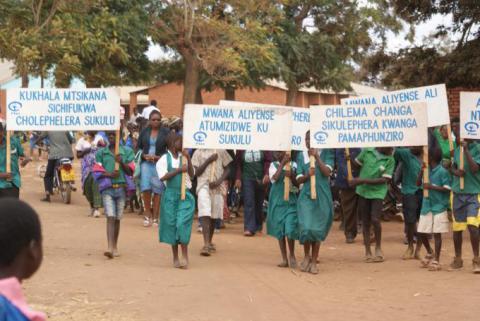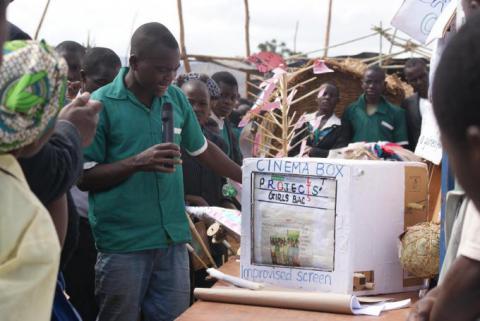Fight Against Child Labour Gaining Ground: Commemoration of the World Day Against Child Labour
Government has been called upon to start enforcing the new Education Law including making sure that education is compulsory in Malawi.
The call was made last Friday by the Director for Child Protection and Child Poverty for Save the Children International, Stanley Phiri in Ntchisi District during the Commemoration of 2015 World Day Against Child Labour.

“Government must continue to increase efforts that ensure access to quality education which may include investment in the teaching profession,” said Phiri.
New efforts have to be made to ensure that national policies on child labour and education are consistent and effective are implemented while coordination between government ministries of education and labour must be enhanced, he appealed.
This years’ theme was “no to child labour-yes to quality education” a powerful call and appeal to Malawi, according to Phiri.
He was also speaking on behalf of consortium partners YONECO, CRECCOM and Total Land Care implementing the Child Labour Elimination Action for Real Change (CLEAR) Project that's being funded by the Eliminating Child Labour in Tobacco-growing (ECLT) Foundation.
“The CLEAR project has continued to register many achievements including the establishment functional systematic protocols for identification and prevention of children at risk of going into child labour, children under 14 years old already in child labour are being withdrawn and referred to various alternative services including education, psychosocial support and over 10,000 children now access education services with the help of mother groups, special groups, youth groups, child labour committees, child labour monitors,” said Phiri.
He also said the project being implemented in Rumphi, Ntchisi and Mchinji districts, continues to improve livelihoods of vulnerable households through agricultural inputs, poultry and Village Savings and Loans to cushion them against economic shocks and food insecurity.

Most importantly, he said, the CLEAR project has embarked on promotion of decent youth employment agenda in line with the Malawi Employment Act of 2000 which allows young persons aged between 14 and 18 years to work in environments that are not harmful to health, safety, education, morals and their development.
However the NGOs implement these initiatives amid various challenges including the including the absence of a Child Labour Policy.
“Our national efforts remain less coherent, coordinated and directed. We, therefore,
continue to appeal to Government to accelerate approval of the Child Labour Policy. We also appeal to Government to consider the newly established National Technical Working Group on Child labour to be a greater opportunity for advancing effective child labour programming in Malawi,” Phiri said.
The commemoration was graced by Ntchisi District Commissioner, Malango Bottoman, and chiefs from the district, among other guests.
“I urge parents to encourage their children to go to school instead of working in tobacco estates and homes. Parents must take their rightful role of educating their children who are our future leaders,” she said.
She hailed civil society organisations for taking a leading role in mitigating the tendency by tobacco estate owners to employ children under the age of 18.
She disclosed that her office is currently putting up several measures to combat the employment of children who are supposed to be in school.
Malawi adopted International Labour Organisation (ILO) conventions 138 on minimum age and 182 Worst forms of child labour in 1999.
Written by Denis Mzembe, the Nation Newspaper with editing by Luzayo Nyirongo/Save the Children
 Malawi
Malawi